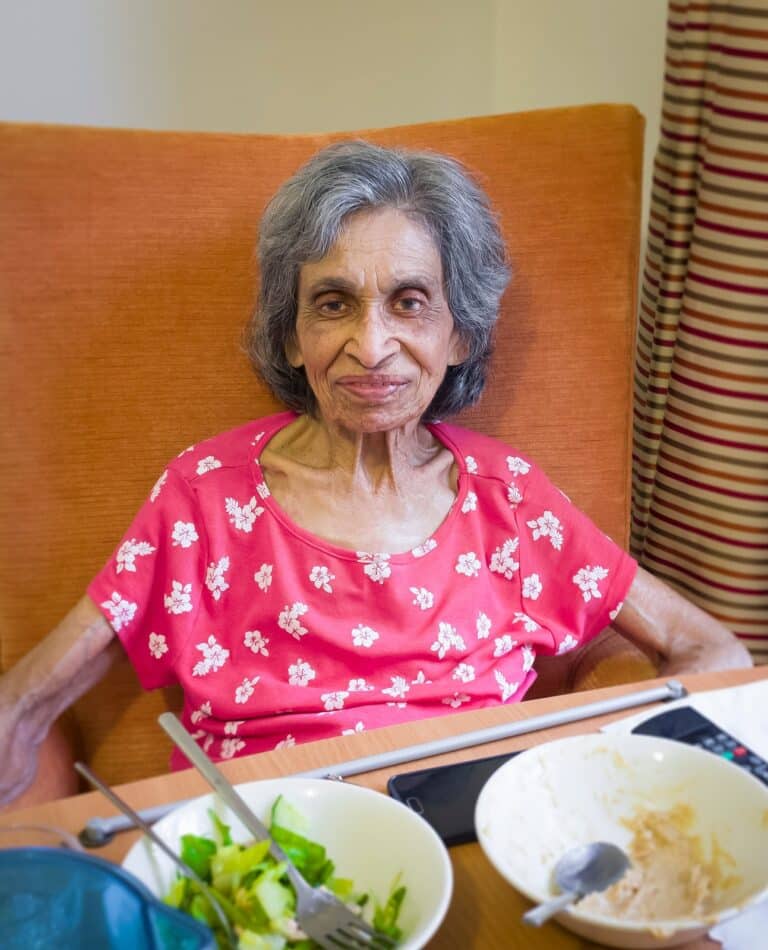Maintaining a healthy diet is essential for everyone at every stage of life, from birth to old age. When it comes to Alzheimer’s care, proper nutrition becomes even more critical. If you are caring for an elderly loved one with Alzheimer’s disease, meeting their nutritional needs is just as important as ever, if not more so.
How Healthy Food Choices Can Affect Your Loved One’s Health
A diet rich in fresh fruits and vegetables, whole grains, and lean proteins can play an important role in Alzheimer’s care, supporting your loved one’s overall health and well-being.
- It can slow the decline of cognitive function, giving your loved one more time to be alert and connected with the world around him.
- It can prevent other health complications from creeping up and negatively affecting his cognitive health. A healthy diet can reduce the risk of diseases like diabetes, high blood pressure, and heart issues, all of which can directly affect his brain health if not properly managed.
- It can provide more energy so he’s able to physically do more activities, which in turn will help him sleep better and manage Alzheimer’s disease symptoms like sundowning or agitation.
- It can help gut health, reducing occurrences of digestive problems like constipation or diarrhea.
Tips for Implementing Healthy Foods Into Your Loved One’s Diet
When it comes to Alzheimer’s care services, encouraging your loved one to eat plenty of healthy food is important for their overall well-being. Even if they’re not used to a nutritious diet, you can help them gradually increase healthy food intake and reduce unhealthy options in a way that’s stress-free and supportive.
- Keep mealtimes consistent. Allowing your loved one to be hungry at mealtime can help him be more receptive to eating. It also helps him navigate through his day by providing markers during the day that help him identify what time of day it is and when he should be eating.
- Serve his food on his favorite plates, use his favorite cups, and set up the table in a way that is pleasing for your loved one. Making the table welcoming can help your loved one eat better.
- If your loved one struggles with consistency, consider preparing healthy food differently. For example, if he shows no interest in munching on hard carrots, try cooking them down to a softer consistency; he might enjoy them more.
- If your loved one is especially resistant to eating healthier foods, try offering a mix of both healthy alternatives and some of his favorites. Or add healthy ingredients to familiar foods (like adding extra vegetables into pasta or soup).
- Be patient and offer praise when he enjoys his healthy options.
Getting Alzheimer’s Care Help During Mealtime
If meals are a bit of a struggle for you and your loved one, consider having someone come to the home to help with this aspect of your loved one’s Alzheimer’s care services.
Your Alzheimer’s care provider may be able to help prepare food while you sit with your loved one and prepare him for the coming meal, or they might take on the role of the distractor if your loved one gets anxious awaiting his time to eat. An Alzheimer’s care provider can chat with him, listen to some music, or help him walk around the room while his meal is being prepared.
Helping your loved one enjoy healthier meals will improve their overall Alzheimer’s care experience.
If you or an aging loved one is considering hiring Alzheimer’s Care in Santa Clara, CA, contact the friendly staff at Home Care Professionals today.
Call (866)-940-4855
- Helping Seniors Manage the Physical Effects of Loneliness - May 29, 2025
- The Importance of Eating Well for Alzheimer’s Patients - May 19, 2025
- Why Dry Feet Are Dangerous in the Elderly - May 14, 2025




